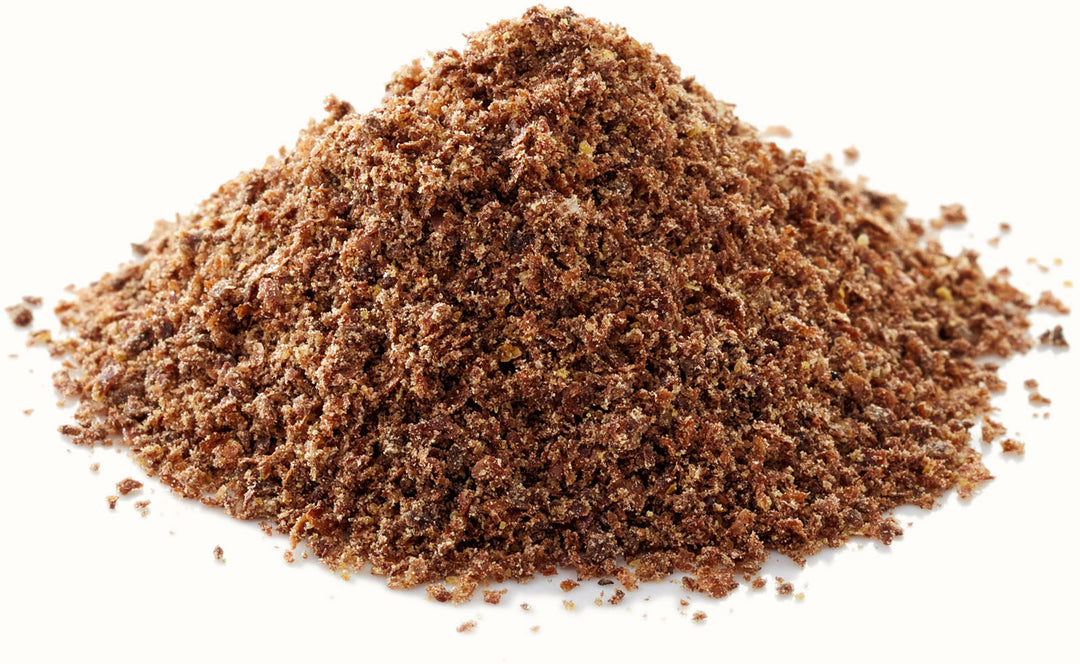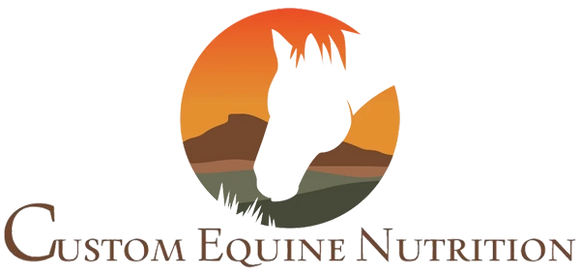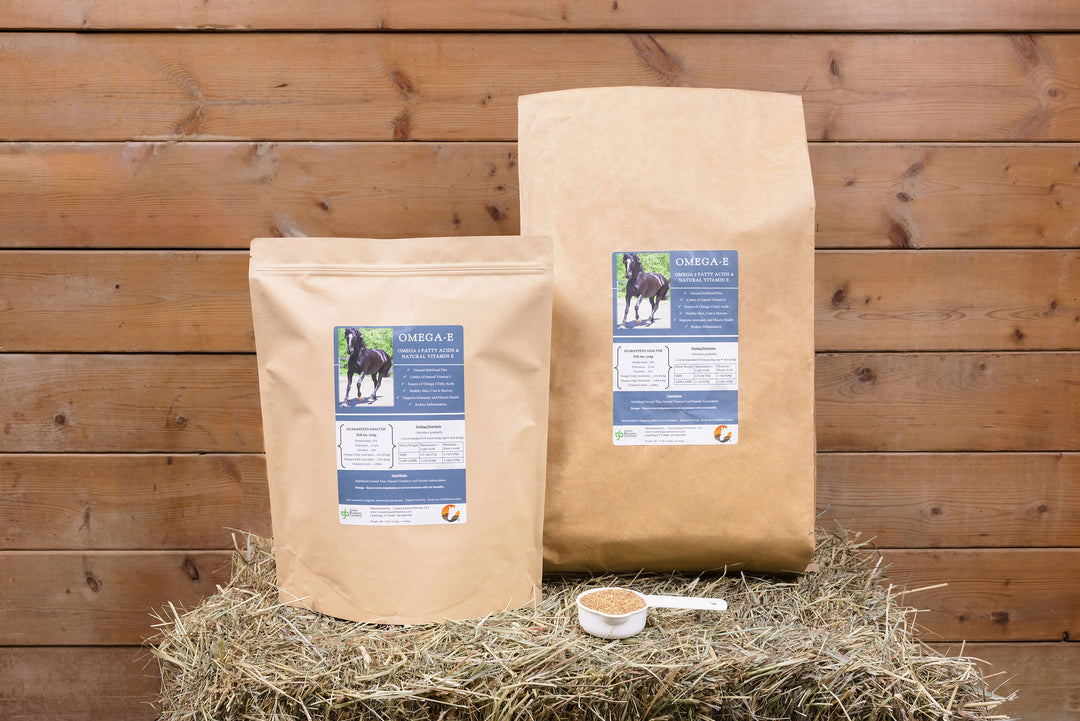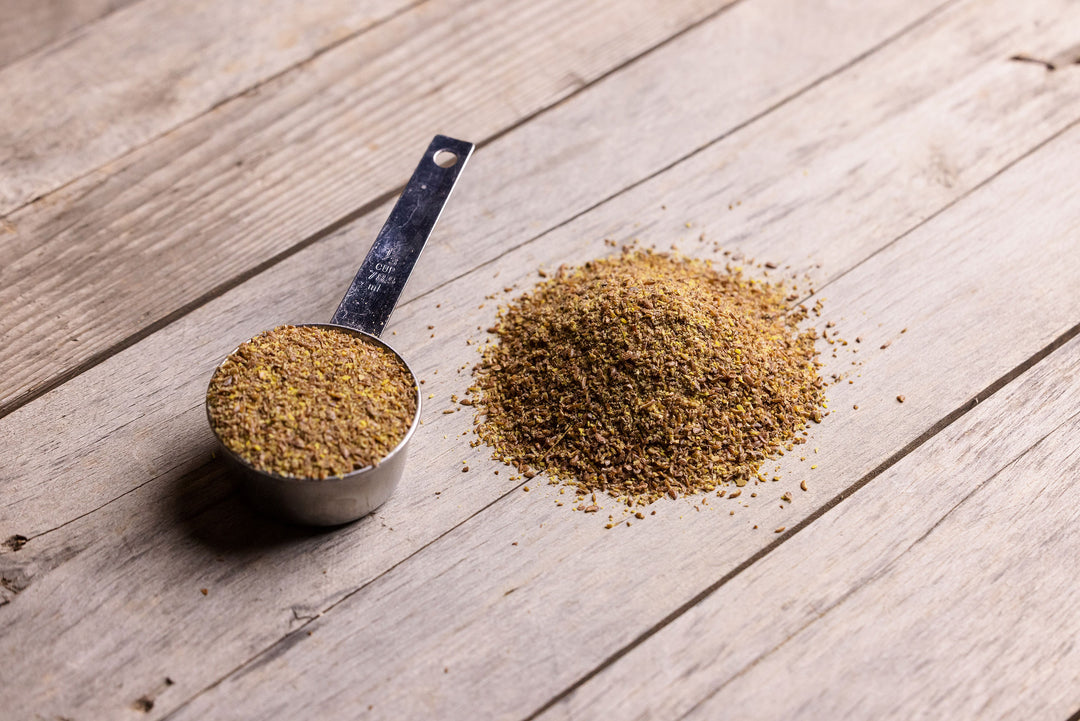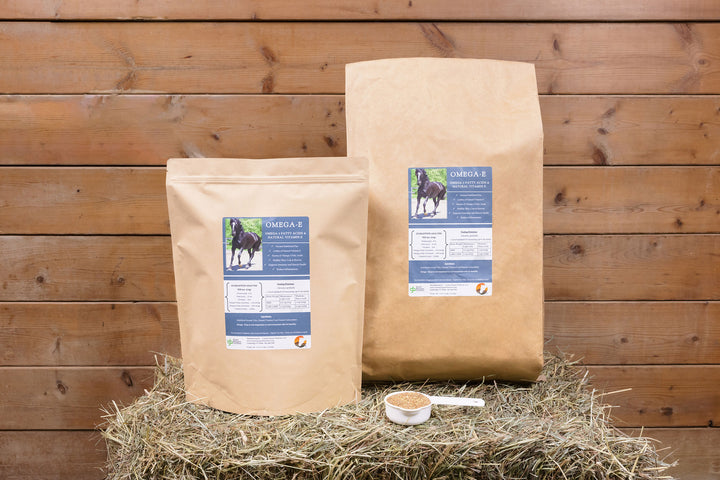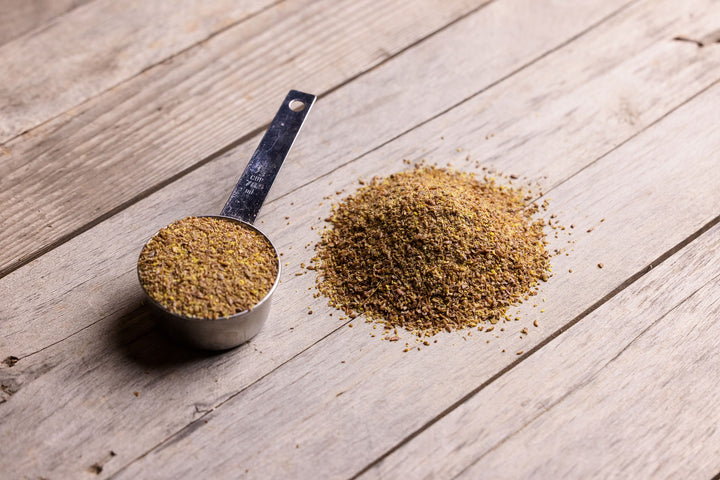GUARANTEED ANALYSIS PER 4oz (114g)
| Crude Protein (min) | 17% |
| Fiber (min) | 27.60% |
| Fat (min) | 33% |
| Omega 3 Fatty Acid (min) | 22% (24.8g) |
| Omega 6 Fatty Acid (min) | 5.8% (6.6g) |
| Vitamin E (min) | 2,500iu |
Introduce gradually No scoop included. Use standard measuring cup as a scoop.
One level measuring cup provides approximately four ounces by weight (114g). Can be split between meals.
| Horse Weight | Maintenance / Light work | Moderate / Heavy work |
| 500lb | 1/2 cup (57g) | 1 cup (114g) |
| 1,000-1,500lb | 1 cup (114g) | 2 cups (228g) |
Why supplement with Omega-E?
Horses receive their omega 3 fatty acids and vitamin E through good quality pasture. Once grass has been cut and baled these nutrients are destroyed. For horses on poor quality pasture, kept in dry lots, or during winter months these nutrients should be supplemented.
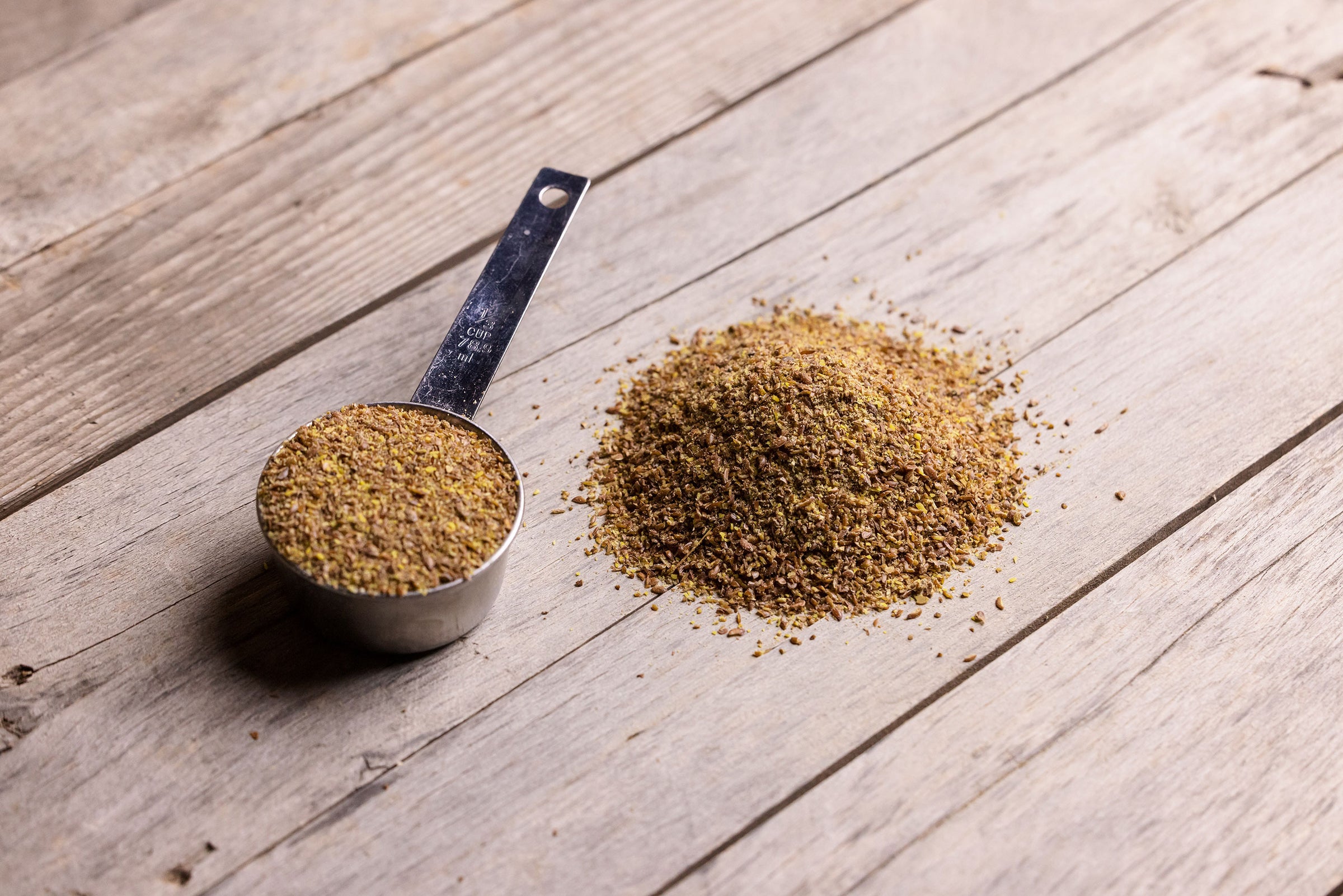
Omega 3 Fatty Acids
Omega 3 Fatty Acids play a role in all tissues of the body. They can help with:
- Skin, coat and hooves
- Increased immune function
- Exercise tolerance
- Decrease inflammation including: reduced response to allergies, and airway inflammation
- Decrease nervousness
- Supports normal gastrointestinal function, vision and nervous system
- Increased sperm production and mobility
- Quality protein source
Omega 3 fatty acids work together with omega 6 fatty acids to help with immune response. There is a delicate balance between Omega 3 and 6 fatty acids that enable them to function properly. Flax provides the same high Omega 3 profile as grass, ensuring your horses levels of Omega 3 and 6 are at an optimum ratio. Flax must be ground / milled for your horse to absorb its nutrients. Fed whole, some of these tiny seeds may pass through undigested. Omega-E provides a ground, stabilized flax. Four ounces (by weight) will provide as much Omega 3 fatty acids as a day spent on pasture.
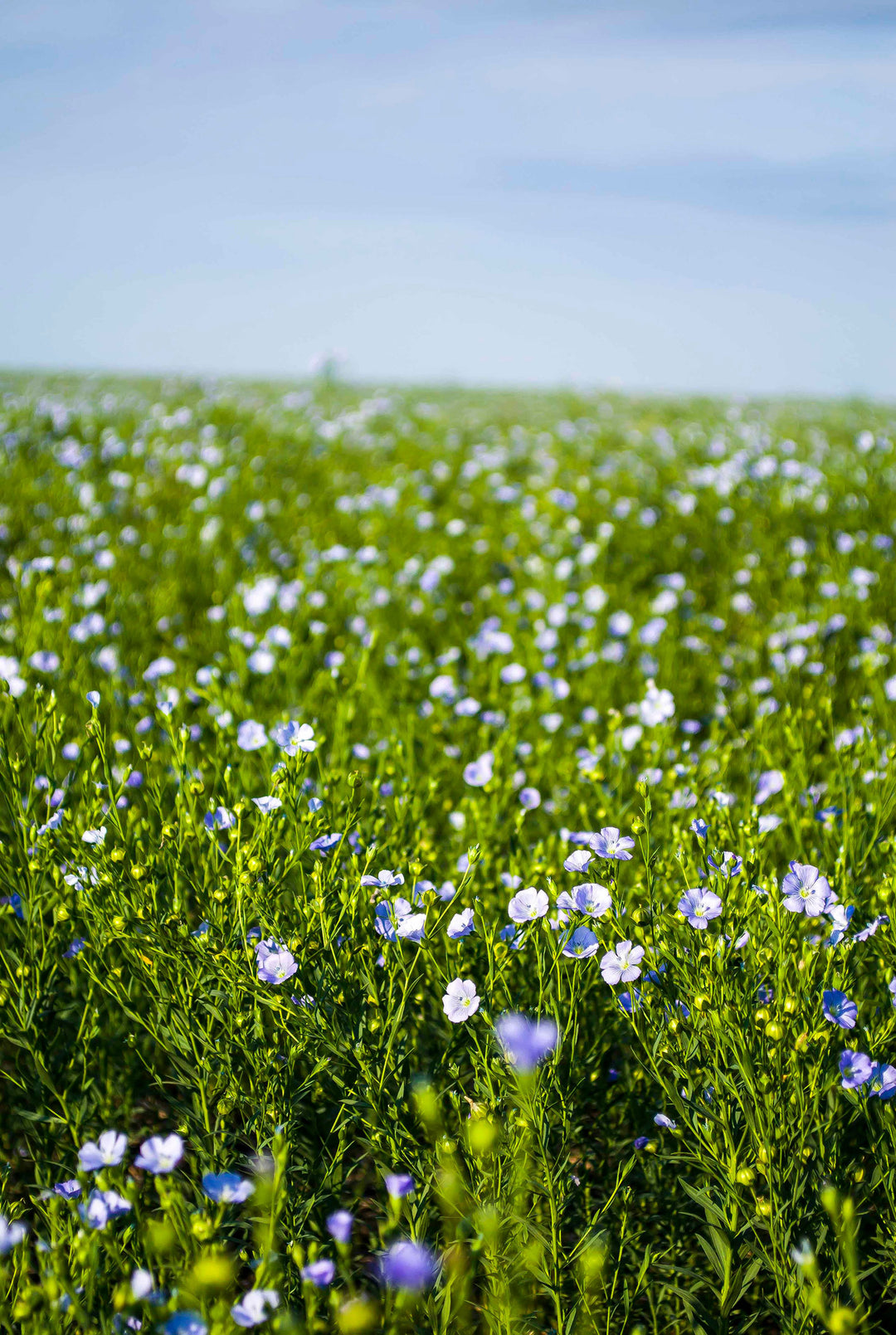
Vitamin E
Vitamin E is the #1 antioxidant for your horse. Deficiencies can result in a compromised immune system, muscular and/or neurological disorders, decreased stamina, muscle atrophy, etc. Natural Vitamin E is twice as bioavailable compared to synthetic. The National Research Council (NRC) set the minimum Vitamin E requirements at 2iu/kg of body weight. That is 1,000iu/day for your average 1,100lb horse. Omega-E provides your horse with 2,500iu per serving of Natural Vitamin E.
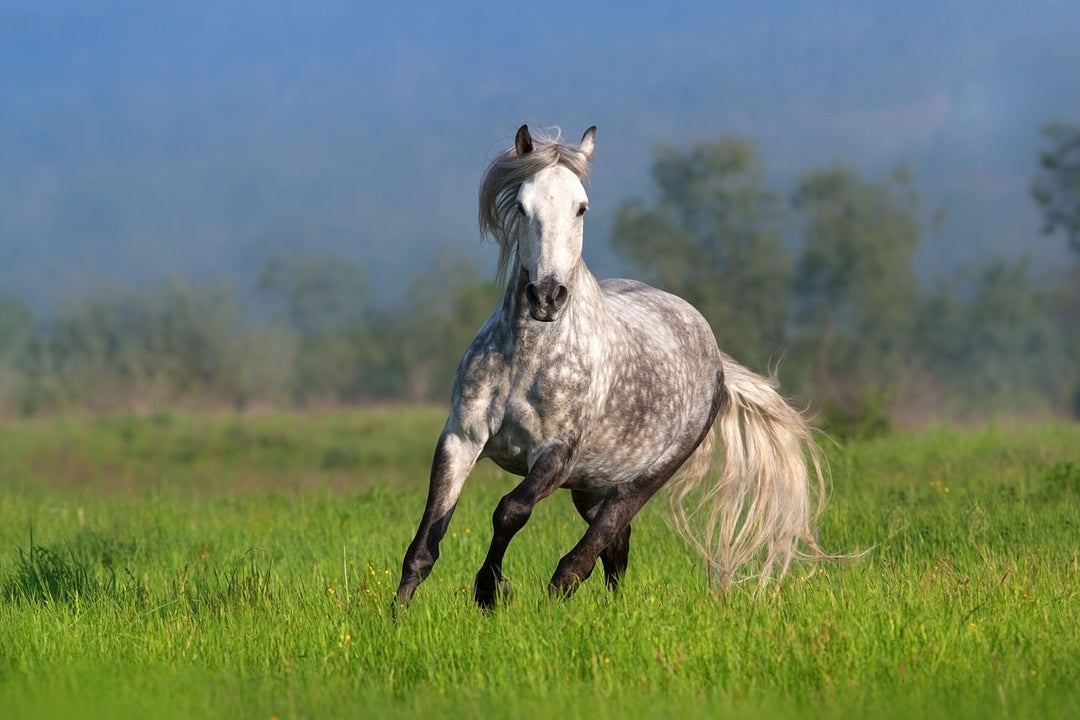
Omega-E Ingredients Working Together
Vitamin E is a fat soluble vitamin. This means it should be fed directly with a fat source for optimum absorption. Flax is 30% fat and provides this fat source. The form of Vitamin E used; Alpha-Tocopheryl, helps prevent the oils in flax from spoiling, preserving its nutrients.
No extra ingredients, fillers or flavors. Manufactured in VT. Non-GMO
